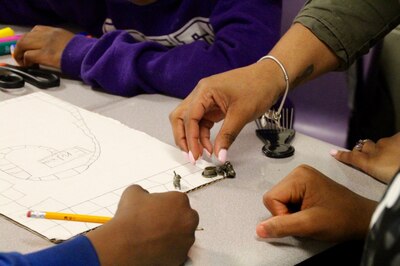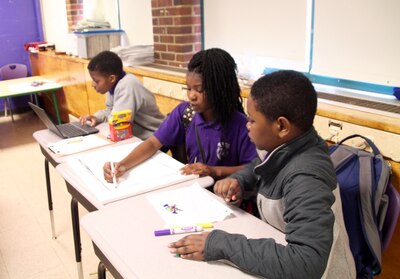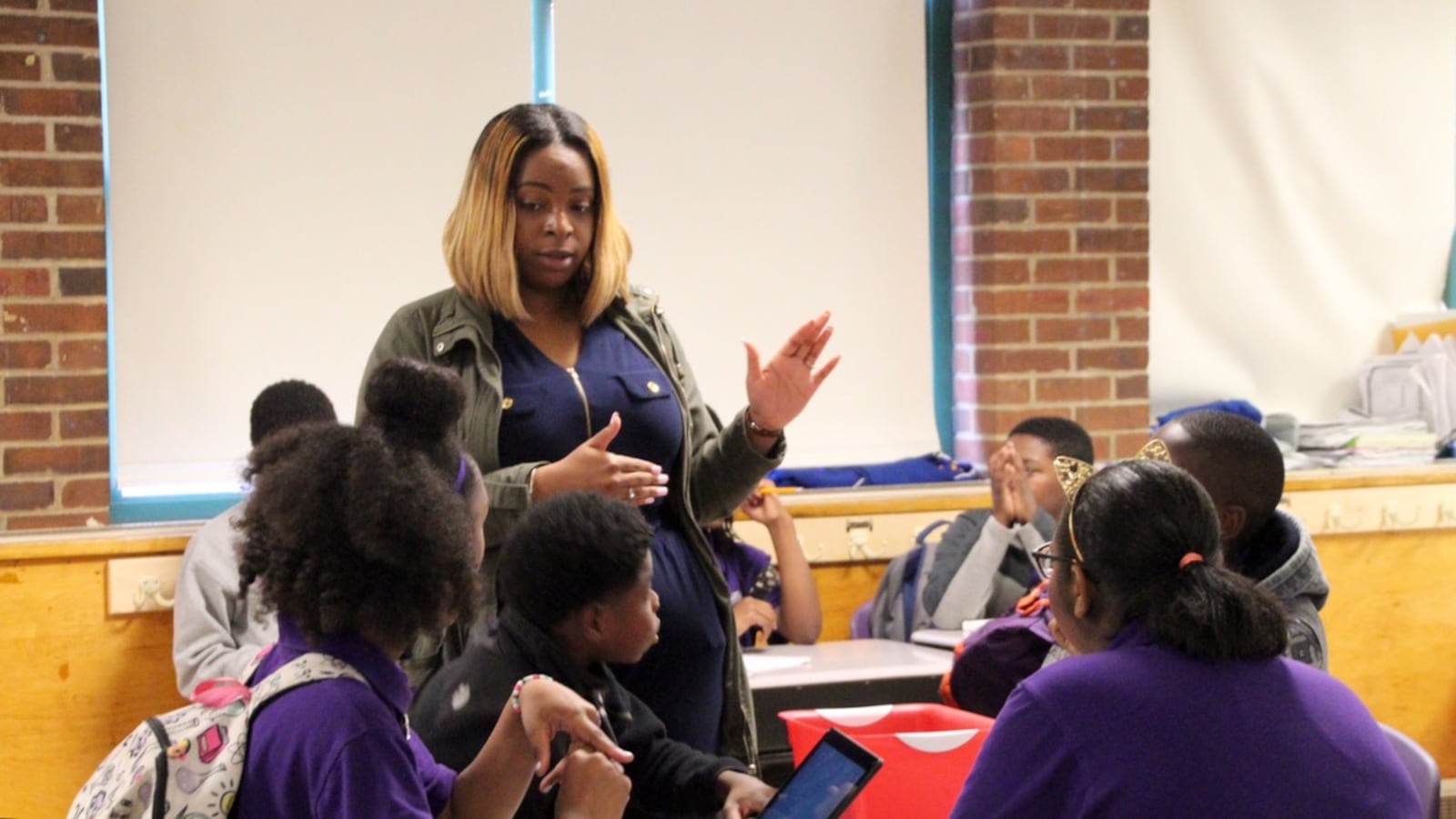Here, in a feature we call How I Teach, we ask educators who’ve been recognized for their work how they approach their jobs. You can see other pieces in the series here.
In a classroom in Memphis, sixth-graders are hard at work creating their own version of Monopoly.
Dubbed “Mathonopoly,” students are prompted to design a board game that incorporates 15 math problems. After several class periods of strategizing, the students take turns playing each other’s games.

Yomyko Clark, in her first year of teaching at Aspire Hanley Middle School, says this lesson is one of several game-based math lessons she teaches throughout the year.
“Our students pay attention when they are having fun,” Clark said. “Do many of my kids associate ‘fun’ with math? No, but my goal is to help them see how math is a part of everyday games that they love.”
Clark, 25, grew up in Memphis, graduated from East High School, and went on to study social work at the University of Memphis. She found her way to the classroom through a teacher training program with Aspire Public Schools, the national charter operator that runs Hanley as part of Tennessee’s state-run school district.
This interview has been condensed and lightly edited.
Why did you become a teacher?
My inspiration to teach derives from working with children for several years throughout my college career. I started in social work, but I realized that I wanted to work more closely with kids. I wanted to be in a classroom. I chose to teach because I want to be an example to children that they can succeed and accomplish anything that they dream. My goal is to encourage children to feel self-sufficient in their own learning skills.
How does your own education experience impact you as a teacher?
I graduated from East High School, and I had one teacher there who really changed my life. She taught English, and she was so hands-on in her classroom. She showed me how engaging education could be. And she had this mother’s love. If you were failing her course, you better believe she was going to talk to your family. But she also wasn’t going to give up on anyone.
Now, I try to tell my kids, “I’m your mom. You’re my babies, and I’m going to fuss over you, but you’re going to learn.”
What is one of your favorite lessons to teach?
One of my favorite lessons to teach is ratios with percent. I love this lesson because it deals with comparing different quantities.
Most of my students love to throw balled up paper in the trash like they are playing basketball. So, to teach this lesson, I incorporated a paper basketball tournament where students played “basketball” with the trashcan and balled-up paper. As a class, we kept a record of how many shots students attempted versus how many shots made. We’re able to create different percentage ratios from this.
What’s makes this lesson work — like the Monopoly game — is that it’s fun. Students are engaged the whole time; they’re cheering on their classmates as they shoot baskets. But they’re also shouting out the ratios we calculate. They’re learning, and they don’t even know it.
How do you get your class’s attention if students are talking or off task?

To get the class attention when students are talking I use a call and response. For example, If you can hear my voice, say “Oh Yeah!,” and the students will respond “Oh Yeah” and get silent.
We also have an incentives system at our school — where we can give students “bonuses” and rewards. If I student is modeling great behavior, I point it out to the class and mention that they’ve earned a bonus. This really works well because students have really bought into receiving bonuses and earning incentives.
Tell us about a memorable time — good or bad — when contact with a student’s family changed your perspective or approach.
One day after work, I saw a student walking in the hallway around 4:45 p.m., which was after dismissal. The student informed me that she missed the bus and didn’t have a phone to contact her parents. With no hesitation, I gave her the phone. The student could not remember the number so I called a number in her file. I was able to speak with the grandmother and the grandmother did nothing but refer to the student as dumb and stupid because he/she missed the bus. Saddened for the student, I was able to understand why he/she was soft spoken and very sensitive when given a behavioral redirection. This situation opened my eyes greatly and made me more vulnerable to the student’s feelings. It changed the way I interacted with her in the future.


